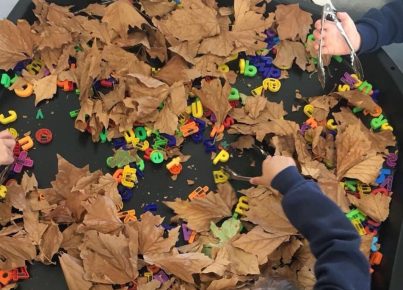It is essential to acknowledge that watching your child struggle with academics can be devastating, but you should know that you are not alone. As parents, it is our primary goal to see our children thrive in all aspects of their lives, and when they face challenges, especially in education, it can be frustrating and worrisome. This article aims to provide guidance and support for you during this trying phase and help you and your child overcome academic struggles together.
1. Emphasize the importance of communication.
Open and consistent communication with your child is essential at this time. As students’ challenges can stem from various roots like lack of understanding, poor motivation, or a learning disability, it is crucial to maintain an open dialogue with your child about their needs, experiences, and emotions.
2. Be supportive without placing blame.
When dealing with a failing child, remember to provide constructive criticism rather than blame. Instead of saying “You’re not trying hard enough,” consider offering specific advice on areas that need improvement like time management strategies or better studying habits. Encourage your child’s talents and strengths, which will help boost their confidence.
3. Recognize the signs of potential learning disabilities.
If your child consistently struggles with specific subjects or tasks despite dedicated effort or appears disinterested and distracted in general, it may be crucial to consider seeking professional advice. Early intervention can make a difference in helping children overcome challenges associated with learning disabilities.
4. Collaborate with teachers.
Communication between parents and educators is critical when addressing academic struggles. Schedule regular meetings or maintain open lines of communication with your child’s teachers for updates on progress and specific areas where they need help. Requesting feedback will enable you to work collaboratively on mapping out plans for academic success.
5. Embrace different learning styles.
Every child learns differently, so explore ways to adapt their learning environment to accommodate their style. Whether your child is a visual, auditory, reading/writing, or kinesthetic learner, tailor study time and resources to optimize their strengths and enhance their comprehension.
6. Encourage peer-to-peer learning and seek external help.
Classmates who excel in specific subjects could provide additional support through peer-assisted learning or tutoring sessions. Moreover, enlisting the aid of academic professionals such as tutors or educational centers can also prove valuable in addressing specific challenges your child may face.
7. Set realistic expectations and goals.
Helping your child set attainable yet challenging goals is essential in fostering motivation and providing a sense of accomplishment when progress is made. Monitor your child’s achievements by celebrating small successes – these milestones will help them believe in their abilities.
In conclusion, the journey of overcoming academic struggles can be a daunting one for parents and children alike. However, understanding that failure can be an opportunity for growth; nurturing open communication with your child, teachers, and educational professionals; being adaptable; and setting achievable goals can pave the way for success. Remember not to lose hope, stay persistent, and aim for positive transformation through mutual support and encouragement.




